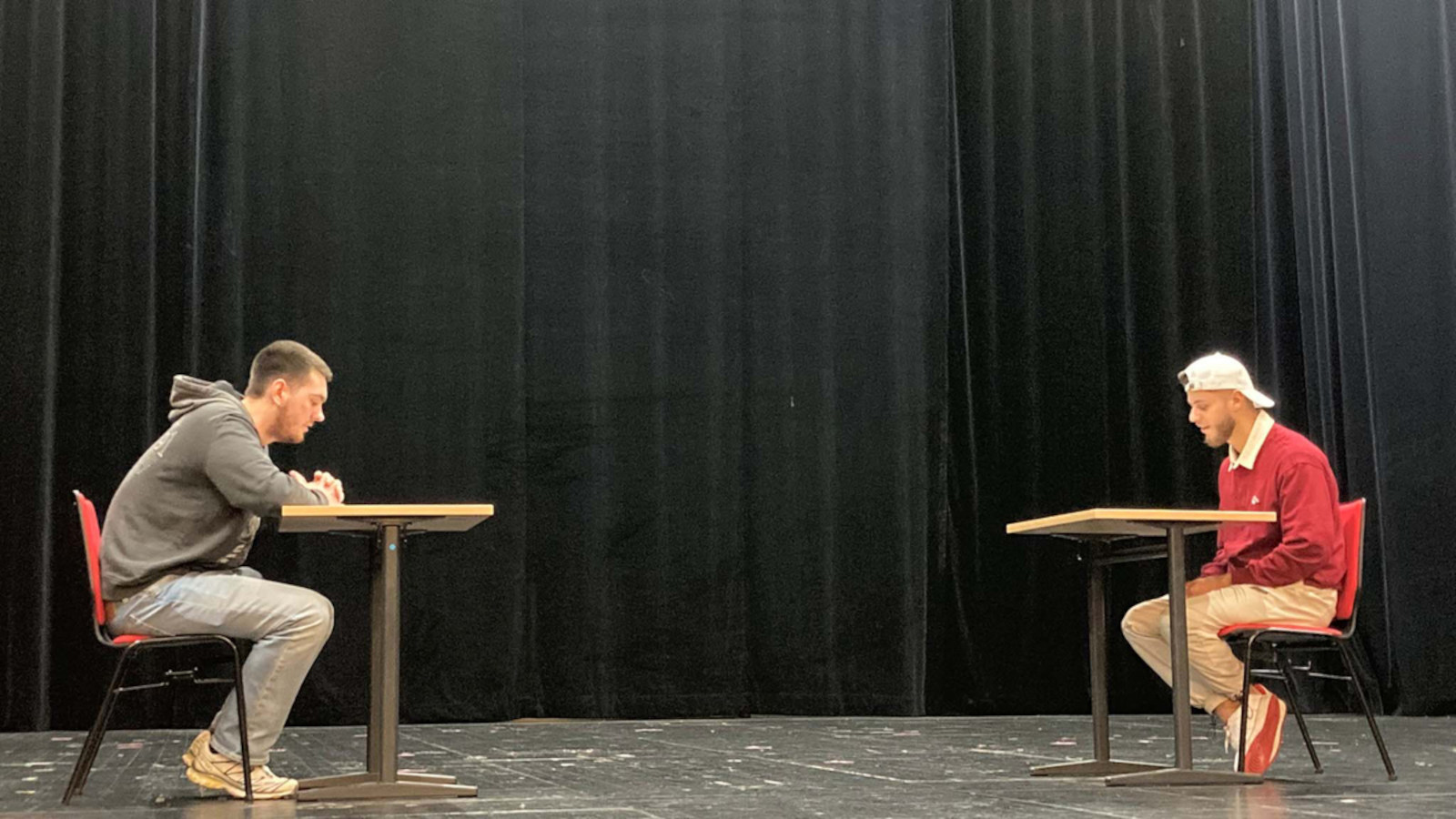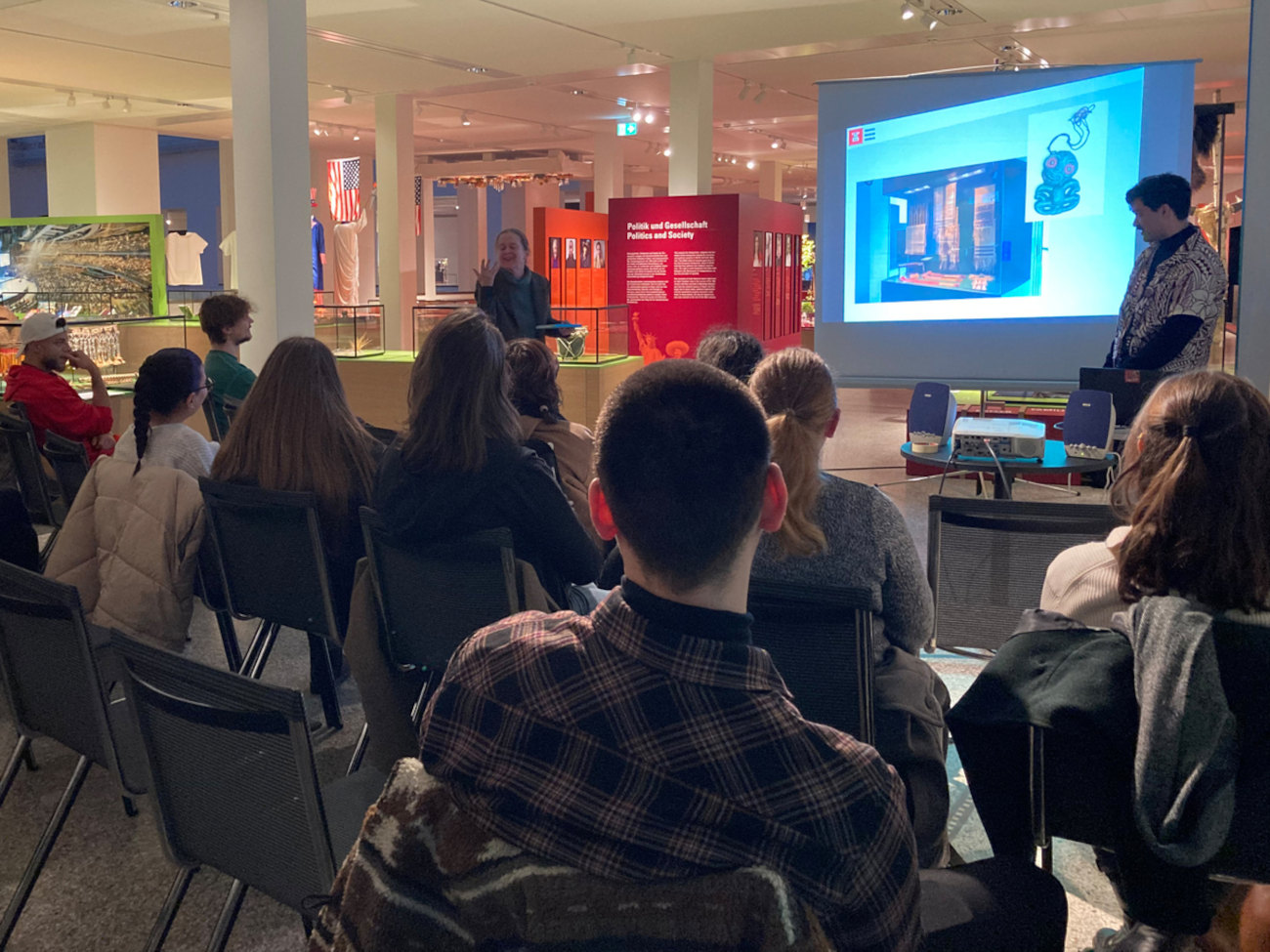
© Megan Dwinger/Universität Bremen
Rethinking Poetry
Open teaching approach: the project “Alternative Poems for Germany” at the University of Bremen is developing while it is in progress.
A poem has to rhyme. It should have a clearly recognizable rhythm of emphasized and unemphasized syllables. These rules are still often taught at school today. But does it have to be that way? In the project “Alternative Poems for Germany” at the University of Bremen, students, teachers, students, and interested residents of Bremen are taking a different path. With their approach, they won the award for the “Eine Uni – ein Buch” (One University – One Book) tender.
In the winter semester just coming to an end and the coming summer semester, the “alternative poems” will become visible at the university and in the city of Bremen. The focus here is on two things: a course in the “Fachdidaktik Bewertungs- und Reflexionskompetenzen” master’s module of Faculty 10: Linguistics and Literary Studies as well as a lecture series for the General Studies area there. In addition, there will be a reader, which is expected to be published in autumn 2023 and will record the most important findings of the course.
The path to concrete implementation of the project first had to be found. Because, as is often the case when trying something new, there were mainly questions as the project began in late summer 2022. What exactly should happen in the course? How can students, on the one hand, and interested residents of Bremen, on the other, make a meaningful contribution? What type of publication should ultimately come about from this? And – as a matter of principle – what do we mean by alternative poems?
Open Approach Brings New Approach
“As it turned out, very different things,” says Lena Otto. “When it comes to alternative poems, our lecturers primarily thought of unknown poems that would have deserved to be read in class.” Together with Megan Dwinger, a master’s student of the same age, the 24-year-old is helping to implement the project as a student assistant. For Lena herself, the term mostly brought alternative forms of poetry such as songs or poetry slams to mind. For Megan, on the other hand, it was clear that this refers to an approach of introducing poems to pupils in an alternative way.

© Megan Dwinger/Universität Bremen
And what are alternative poems now? “We agreed on a very open understanding of what poetry is,” says Megan. An approach that seems to pay off. Since the start of the project in October, the more than 25 participants have immersed themselves in song lyrics by Taylor Swift, shared their emotions brought forth by a poem about the Chilean civil war, and analyzed the experiences of racism of a black poet from Costa Rica. But there is also a place for classics: at the end of the lecture period, Schiller’s Song of the Bell was discussed. The choice was made by the participants themselves. Anyone can contribute texts to the seminar, regardless of whether they are students, university staff, or participants from the city.
“I really like this open-minded side,” says Megan. “I now approach texts more consciously. To be honest, poetry had never made me feel anything before, but that’s a completely different story now.” Lena finds it exciting that the course only develops while it is already in progress: “It quite easily fits into the seminar and it gives a lot back,” says the student. In the past, she hardly could have imagined how teachers could spark young students’ interest for these types of texts. “Now I think these texts can be very exciting lesson content.” She contributed the song “All Too Well (10 Minute Version)” by Taylor Swift. “I already knew that it contained a lot of emotion. But the fact that we were able to get so much out of it in the seminar also surprised me,” says the student.
Successful at “Eine Uni – ein Buch”
The project is led by Professor Sabine Doff (Faculty of English Language Didactics) and the literary scholar Dr. Uwe Spörl , both from Faculty 10. They developed the project and were thus able to impress with the “Eine Uni – ein Buch” program in summer 2022. This way, they secured 10,000 euros of project funding. In addition, the University of Bremen Foundation is cofinancing the project. The tender for “Eine Uni – ein Buch” is backed by the Stifterverband and the Klaus Tschira Stiftung in cooperation with ZEIT-Verlag. The ten best ideas and campaigns for living campus culture across Germany will be honored
© Universität Bremen
Reader with Tips for Teachers
The course is now almost over. The next step is to create a reader. “What exactly the reader will look like is still unclear,” Megan explains. The content is closely related to the course, the content of which is only gradually revealed. There’s still some work to do for her and Lena. This is because the student assistants deal with things such as the release of rights for the copyrighted works that may be reprinted. “What we can really use from this will become clear over the coming months,” says the student. However, one thing is already certain: the reader is primarily aimed at teachers in schools. “Among other things, it should help them to approach the topic of ‘poetry’ in class as an alternative,” says Megan.
Another special feature of the project is the diversity of the participants, who enrich the course and the reader with their experiences and perspectives. Residents of Bremen who are interested regularly register for the online seminar. They come from very different areas of city life. For example, representatives of the Übersee-Museum, the Wilhelm Wagenfeld Haus, and the Gruppe für Gestaltung are involved, as are actors from the Bremer Shakespeare Company. Teachers and students from the Hermann-Böse-Gymnasium are also involved. In addition, there are poets such as Shirley Campbell Barr from Costa Rica. She presented and discussed her works at the event. At the end of the event, a visit to a printer in the Bremen district will be on the agenda. Together with the students, everyone involved is working to ensure that the broadest possible view of alternative poems is achieved, which should ultimately enrich future teaching at Bremen’s schools and beyond.
Additional Information
Website “Eine Uni – ein Buch” (in German)
Website of Faculty 10, Linguistics and Literary Studies (in German)